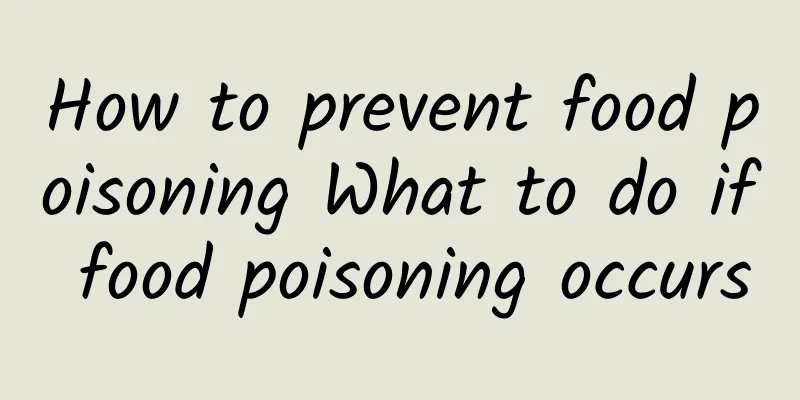How to manage blood pressure scientifically? Self-management guide for patients with hypertension

|
Hypertension is called a "silent killer" because it usually has no obvious symptoms, but long-term uncontrolled can lead to serious consequences such as cardiovascular and cerebrovascular diseases and kidney damage. According to statistics, about 1 billion people in the world suffer from hypertension, and many people do not know they are ill. This article will give you a detailed introduction on how to scientifically manage blood pressure and help patients with hypertension better control their condition. 1. What is hypertension? Definition: Blood pressure refers to the force exerted by blood on the walls of blood vessels as it flows through them. Hypertension is defined as blood pressure that is persistently higher than normal (usually systolic blood pressure ≥140 mmHg and/or diastolic blood pressure ≥90 mmHg). Classification: Essential hypertension: accounts for more than 90%, the cause is unknown, and it is related to genetics and lifestyle. Secondary hypertension: caused by other diseases (such as kidney disease, endocrine disease). Hazards: Long-term hypertension can lead to arteriosclerosis, myocardial infarction, stroke, renal failure, etc. 2. Risk Factors for Hypertension Uncontrollable factors: Age: As we age, blood vessel elasticity decreases and blood pressure tends to rise. Genetics: People with a family history of high blood pressure are at a higher risk. Controllable factors: Diet: A high-salt, high-fat diet is the main cause. Lack of exercise: Being sedentary for too long can lead to weight gain and increased blood pressure. Smoking and drinking: Nicotine and alcohol can directly increase blood pressure. Stress: Long-term mental stress can activate the sympathetic nervous system and cause blood pressure fluctuations. 3. How to manage blood pressure scientifically? Monitor your blood pressure regularly: Self-measurement of blood pressure at home: It is recommended to measure at a fixed time every day and record the data. Dynamic blood pressure monitoring: Through 24-hour dynamic blood pressure monitoring, you can understand the pattern of blood pressure fluctuations. Eat a healthy diet: Low-salt diet: Daily salt intake should be controlled below 5 grams. Eat more foods rich in potassium: such as bananas, spinach, potatoes, etc., which can help lower blood pressure. Reduce saturated fat intake: eat less red meat and fried foods, and eat more fish and nuts. Moderate exercise: Aerobic exercise: such as brisk walking, swimming, and cycling, at least 150 minutes per week. Strength training: 2 times a week to increase muscle strength and improve metabolism. Quit smoking and limit alcohol consumption: Quit smoking: Smoking causes blood vessels to constrict and blood pressure to rise. Alcohol limit: Daily alcohol intake should not exceed 25 grams for men and 15 grams for women. 1. Weight Control: BMI (body mass index) should be controlled between 18.5-24.9. Waist circumference: <90 cm for men and <85 cm for women. Psychological adjustment: Learn to relax: relieve stress through meditation, deep breathing, etc. Maintain good sleep: sleep 7-8 hours a day and avoid staying up late. |
Recommend
What are the symptoms of ovarian torsion after egg retrieval?
In order to help some infertile couples to succes...
What to do if the hymen is imperforate
Many people don't know what hymen imperforate...
Why is a woman's face swollen?
In daily life, most women have facial swelling. W...
Why do you fart during ovulation?
The best time for women to get pregnant is genera...
GWI: 2021 Sports Report
GWI released the "2021 Sports Report", ...
What are the ways for women to lose weight in the abdomen
Women always like to lose weight, and always feel...
Introduction to cervical electrocautery
The cervix is a relatively important organ for ...
Precautions after hysteroscopic curettage
Important reminder: Diagnostic curettage with hys...
The health threat hidden behind your smile! Know the knowledge of oral cancer prevention and treatment early
Mr. Zhang from Xiangtan, Hunan, had an ulcer in h...
Early pregnancy reaction is related to progesterone
Pregnancy is the happiest and most joyful thing f...
Who is the natural cream suitable for? Why can't the natural cream be wiped off?
In fact, the natural cream is a product invented ...
Cervical cancer is more likely to develop after conization
For women, some gynecological diseases have great...
Can I drink rice wine during confinement?
Generally speaking, women are usually very weak a...
Pregnant woman with chest choking
Pregnant women are prone to chest tightness or a ...
Advantages of Traditional Chinese Medicine in Treating Liver Fibrosis
1.What is liver fibrosis? Liver fibrosis is the r...









